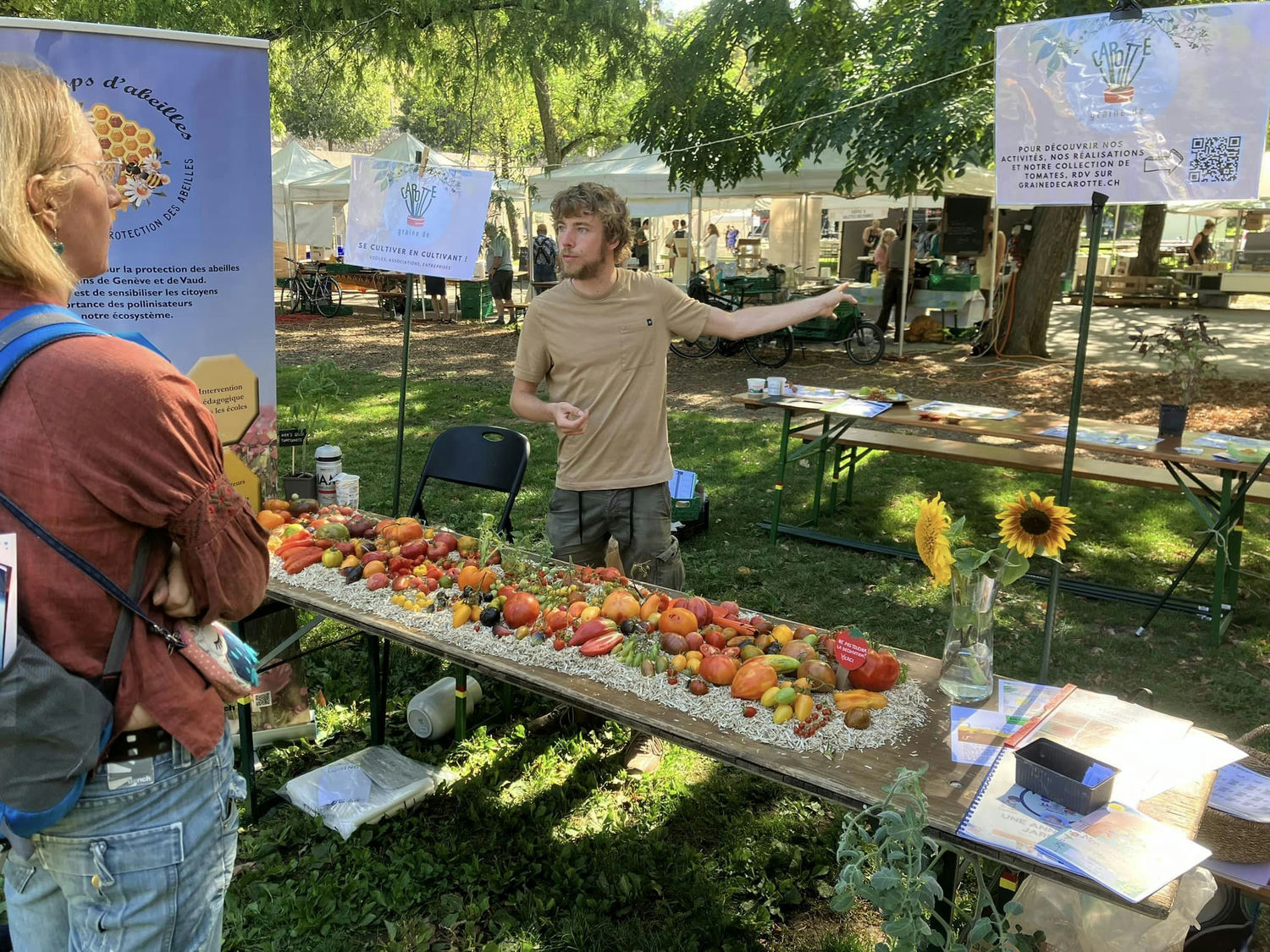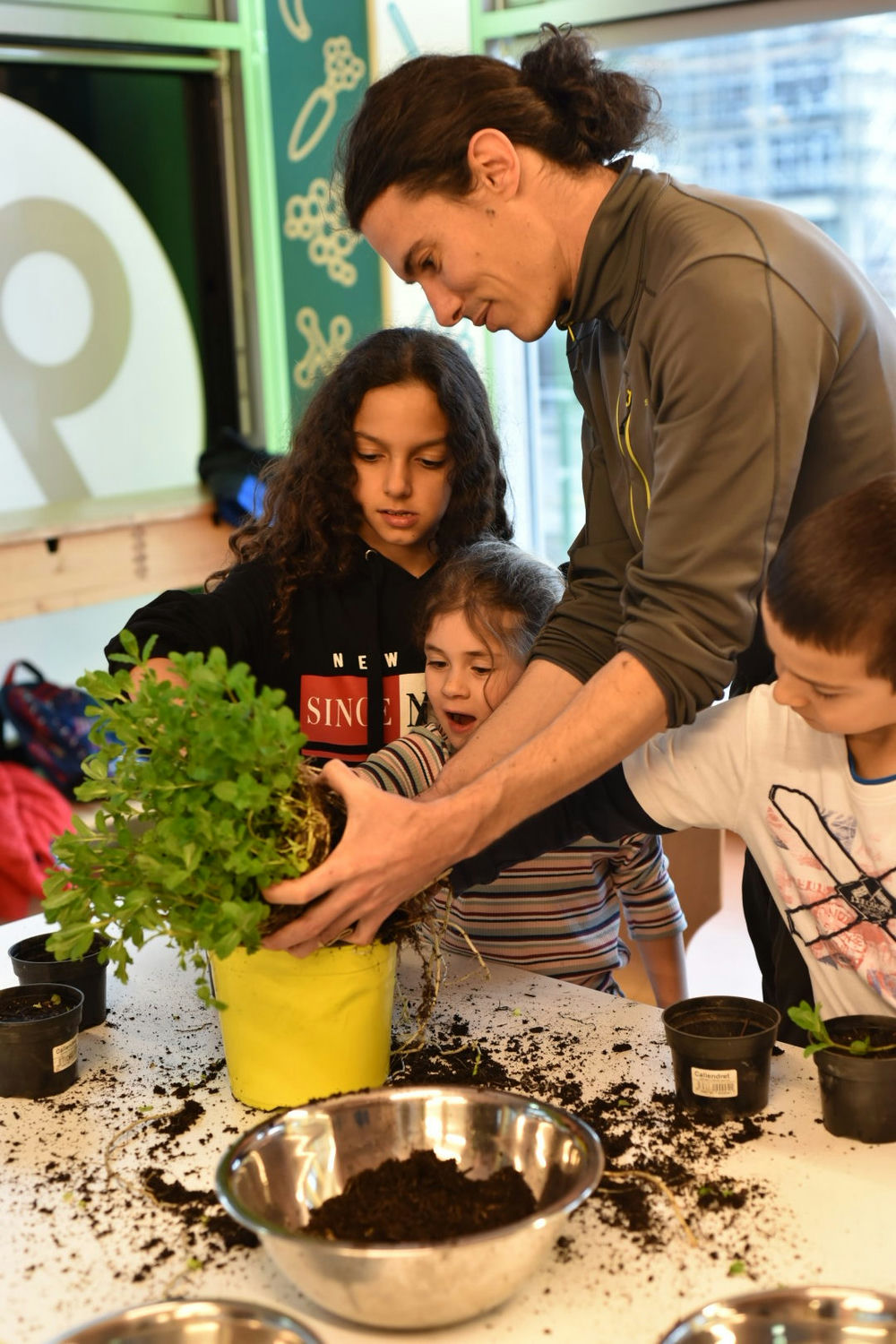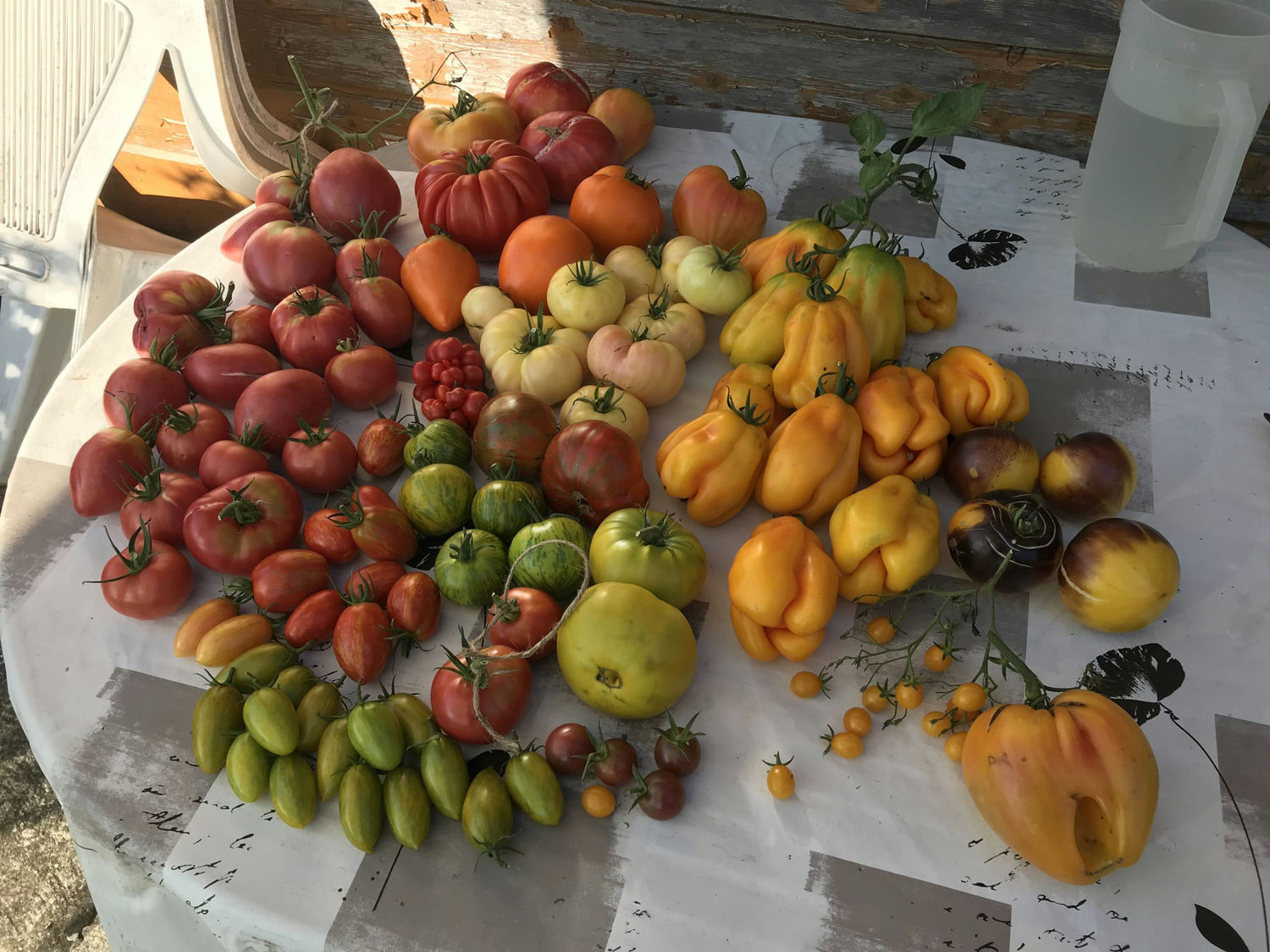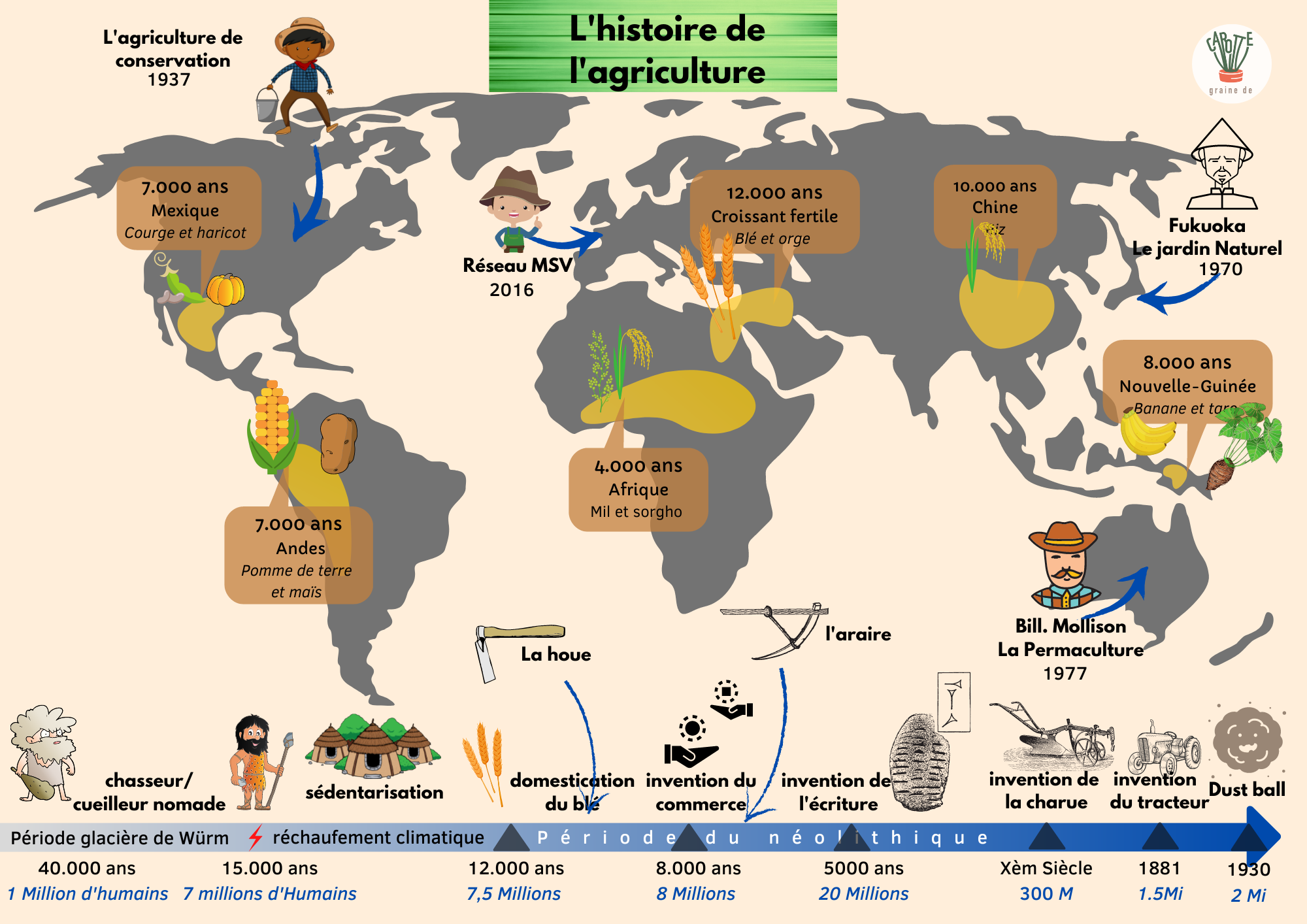Specialists in permaculture training here in Geneva. We tell you a little more about us, our values, and what drives us to create urban vegetable gardens.
About us
Mickael Barcelo
Bachelor’s degree in educational science and holder of 2 State Sports Educator diplomas with 18 years’ experience in teaching and creating educational content.
My passion for nature, and in particular vegetable plants, led me to create Graine de Carotte. As a pedagogue with a keen interest in sustainable development, I naturally turn first and foremost to schools to help them create and maintain educational vegetable gardens. The other part of my activity is aimed at municipal libraries, where I plan to set up grain libraries, an exchange zone for safeguarding and disseminating old varieties.
« Graine de Carotte is all about cultivating while cultivating! «
Simon Thurnherr
« Being part of a generation that has always heard about climate change, I naturally turned to acquiring knowledge that would enable me to propose solutions to the challenges ahead. »
Simon joined the team in March 2023, and is now fulfilling his role as « teacher of the living »! His excellent management of groups (no doubt due to his background as a sports coach) and his talent for passing on his passion have made him a key part of Graine de Carotte!



Who is Graine de carotte?
Since its creation in February 2020, 520 workshops have been offered by Graine de Carotte, totalling in 2024 nearly 9900 students and over 55600 plants planted in the canton of Geneva.
As a pedagogue with a keen interest in sustainable development, we naturally turn first and foremost to schools to help set up and maintain educational vegetable gardens. But rest assured, we also offer workshops for adults.
The other part of our activity focuses on safeguarding and disseminating our cultivated biological heritage, and more specifically that of the tomato! To this end, we organize seed production training courses, discovery workshops and tomato tastings.
In 2023 we set up our online store specializing in tomato seeds.
Since 2024, we have been a partner of ProSpecieRara, which organizes campaigns to save and disseminate local Swiss seeds.
Our values
Sharing my passion and knowledge is the driving force behind my project. With a modern, forward-looking vision and a cross-disciplinary, student-centered approach, I believe that societal change can only be achieved through the education of the very young. By arousing their curiosity, we can help them become responsible adults and consumers.
As part of a local approach, all my suppliers are based in the canton.
Respectful of all forms of life, Graine de Carotte works to protect biodiversity.
Graine de Carotte is all about cultivating while cultivating!

What is Permaculture?
It’s hard to give a definition of permaculture because it’s such a vast concept that it’s open to interpretation… even dogmatism.
So I’ll try to give you my definition of permaculture:
Developed by Bill Molilsson, permaculture is an ecological design system that aims to create sustainable, productive and resilient ecosystems. It uses gardening and farming techniques that respect the environment and focus on long-term sustainability.
Permaculture is inspired by nature and aims to create systems that are self-sufficient and mimic the relationships that exist in natural ecosystems. It emphasizes the efficient use of natural resources and the creation of symbiotic links between the different elements of a system.
Permaculture can be used in many contexts, such as agriculture, forestry, water management, landscaping and the organization of social links. But for me, it’s all about creating systems that are productive and sustainable, while reducing environmental impact and increasing biodiversity.
Permaculture is not backward-looking agriculture. On the contrary, it is based on ecological and ethical principles that aim to create sustainable, resilient systems. Permaculture uses ecological design approaches to create gardens, farms and communities that are in harmony with nature and meet human needs in an equitable and sustainable way.
In short permaculture is a modern, innovative approach to agriculture that aims to create sustainable, resilient systems for future generations.

Permaculture, the result of 10,000 years of evolution in agricultural practices
For me, this is not backward-looking agriculture, it’s the agriculture of the future.
